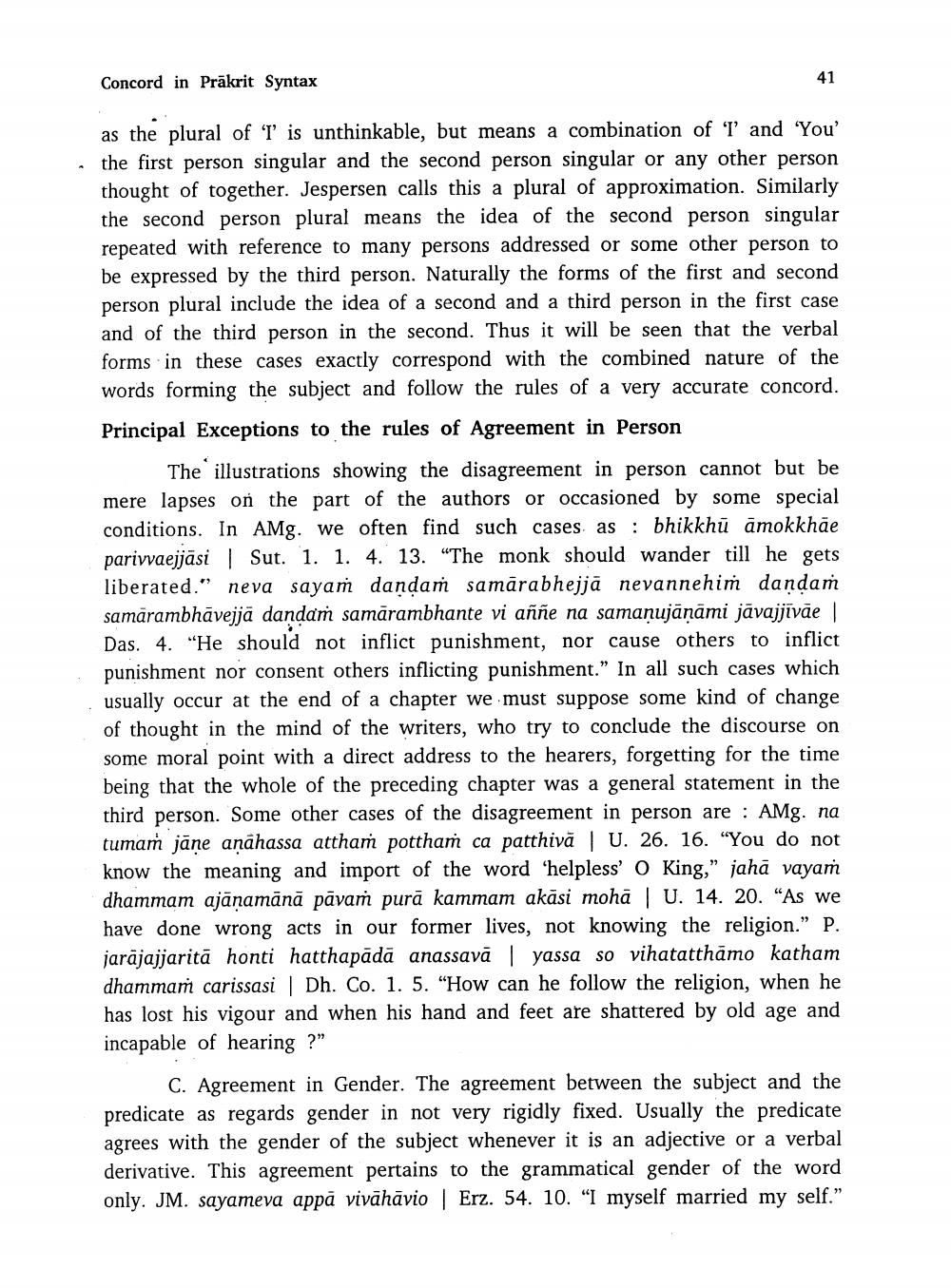________________
Concord in Prākrit Syntax
as the plural of Tis unthinkable, but means a combination of l' and 'You' - the first person singular and the second person singular or any other person
thought of together. Jespersen calls this a plural of approximation. Similarly the second person plural means the idea of the second person singular repeated with reference to many persons addressed or some other person to be expressed by the third person. Naturally the forms of the first and second person plural include the idea of a second and a third person in the first case and of the third person in the second. Thus it will be seen that the verbal forms in these cases exactly correspond with the combined nature of the words forming the subject and follow the rules of a very accurate concord.
Principal Exceptions to the rules of Agreement in Person
The illustrations showing the disagreement in person cannot but be mere lapses on the part of the authors or occasioned by some special conditions. In AMg. we often find such cases, as : bhikkhū amokkhãe parivvaejjāsi | Sut. 1. 1. 4. 13. "The monk should wander till he gets liberated." neva sayam dandam samārabhejjā nevannehim dandam samārambhāvejjā dandaṁ samārambhante vi aññe na samanujāņāmi jāvajjīvāe Das. 4. “He should not inflict punishment, nor cause others to inflict punishment nor consent others inflicting punishment.” In all such cases which usually occur at the end of a chapter we must suppose some kind of change of thought in the mind of the writers, who try to conclude the discourse on some moral point with a direct address to the hearers, forgetting for the time being that the whole of the preceding chapter was a general statement in the third person. Some other cases of the disagreement in person are : AMg. na tumam jāne anahassa attham pottham ca patthivă | U. 26. 16. “You do not know the meaning and import of the word 'helpless' O King," jahā vayam dhammam ajānamānā pāvam purā kammam akäsi mohā | U. 14. 20. "As we have done wrong acts in our former lives, not knowing the religion.” P. jarājajjaritā honti hatthapādā anassavā | yassa so vihatatthāmo katham dhammam carissasi | Dh. Co. 1. 5. "How can he follow the religion, when he has lost his vigour and when his hand and feet are shattered by old age and incapable of hearing ?"
C. Agreement in Gender. The agreement between the subject and the predicate as regards gender in not very rigidly fixed. Usually the predicate agrees with the gender of the subject whenever it is an adjective or a verbal derivative. This agreement pertains to the grammatical gender of the word only. JM. sayameva appă vivāhāvio | Erz. 54. 10. "I myself married my self.”




